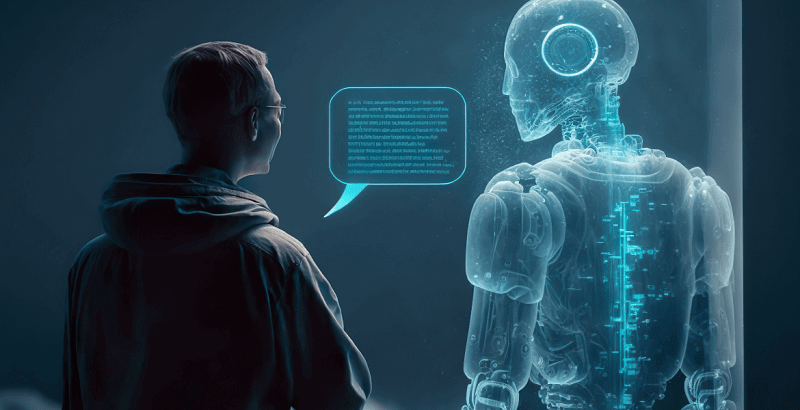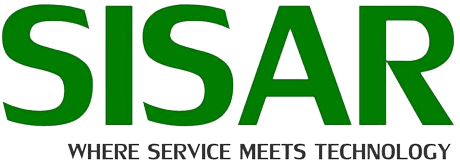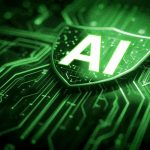The rapid advancement of technology has led to the emergence of artificial intelligence (AI) and machine learning (ML) as game-changing tools in various industries. The field of AI software testing is no exception.

With the increasing complexity and frequency of software releases, efficient and comprehensive testing processes have become paramount.
In this article, we will explore the role of AI in software testing and how it is transforming the dynamics of quality assurance.
The Evolution of Software Testing
Traditionally, software testing has been a manual and time-consuming process. Quality assurance (QA) teams would manually review code, execute test cases, and identify bugs and issues.
However, as software development cycles have become shorter and more iterative, manual testing alone has become inadequate and inefficient.
The introduction of automated testing was a significant step forward, allowing QA engineers to automate repetitive tests and speed up the testing process.
Tools like Selenium WebDriver have been widely used for automated functional testing, helping to alleviate the challenges of manual testing. However, even automated testing has limitations as software systems grow in complexity.
The Challenges of Manual and Automated Testing
Manual testing is prone to human errors and can be time-consuming, especially with large codebases. QA engineers often need help to meet deadlines while ensuring comprehensive test coverage. As software features increase, manually testing each functionality becomes increasingly arduous.
On the other hand, while automated testing can alleviate some of the challenges of manual testing, it still requires significant effort to set up and maintain. Automation scripts must be created and maintained, which can be complex and time-consuming.
Additionally, automated tests may be unable to adapt to codebase changes, leading to instability and false positives or negatives.
Accelerating Testing Timelines with AI
AI has the potential to revolutionize the testing process by addressing the limitations of both manual and automated testing. One of the critical advantages of AI in software testing is its ability to accelerate testing timelines.
Traditional manual testing involves reviewing thousands of lines of code, which can be time-consuming. AI can quickly analyze log files, scan code, and detect errors in a fraction of the time it would take a human tester.
AI-powered testing tools can also perform repetitive tests, such as regression and sanity tests, faster than manual or automated testing.
By offloading these repetitive tasks to AI, QA engineers can focus on testing new features and critical software parts, ensuring a more efficient and thorough testing process.
Improving Automation with AI
While automated testing has been a valuable tool in the QA arsenal, AI can further enhance and optimize the automation process.
AI bots can evolve with changes in the codebase, adapting and learning to identify new functions. When modifications are made to the code, AI bots can determine if it is a new feature or a defect arising from code changes.
In addition, AI can improve visual testing, enabling more sophisticated change detection. By leveraging AI in visual testing, QA engineers can ensure that the software’s user interface remains consistent and visual defects-free.
Gaining Clarity on Client Requirements
Understanding client requirements is crucial in software testing. AI can assist by analyzing similar websites and apps to identify critical factors contributing to their success.
By studying competing products, developers and testers can gain insights into what users want from a particular software and ensure that the product meets those expectations.
AI can also detect common code flaws hindering the software’s flawless functioning. By understanding the client’s goals, QA engineers can create test cases that ensure the product stays intact when achieving those objectives.
Mastering Test Automation with ChatGPT
ChatGPT has emerged as a powerful tool in automation testing in recent years. OpenAI’s ChatGPT, a state-of-the-art language model, uses natural language processing-based AI to automate code generation and testing tasks.
ChatGPT can generate code snippets based on natural language prompts, making it a valuable resource for beginners learning programming languages. It can also assist in code completion, explaining the purpose and function of specific lines of code, and identifying and explaining code errors.
Additionally, ChatGPT can provide guidance on project structure, best practices, and libraries for beginners embarking on software development projects.
The Future of AI in Software Testing
Incorporating AI into the software testing process is an ongoing journey. While AI has the potential to enhance testing efficiency and accuracy, it is essential to acknowledge that human intervention and quality checks are still vital in ensuring the best possible user experience.
AI should be seen as a tool that complements and empowers QA engineers, allowing them to focus on more strategic and creative aspects of testing.
As AI continues to evolve, QA teams must adapt and acquire new skills to harness its potential fully. A unified approach, where all team members can do both manual and automated testing, will lead to more robust QA practices and improved software quality outcomes.
In conclusion, AI is revolutionizing the field of software testing by accelerating testing timelines, improving automation, gaining clarity on client requirements, and empowering QA teams.
By leveraging AI-powered tools and techniques, QA engineers can enhance their testing processes, ensure comprehensive test coverage, and deliver superior quality software faster and more efficiently.
As technology advances, embracing AI in software testing will be crucial for organizations striving to stay ahead in the ever-evolving digital landscape. Talk to our experts: https://www.sisar.nl/services/software-testing-en






